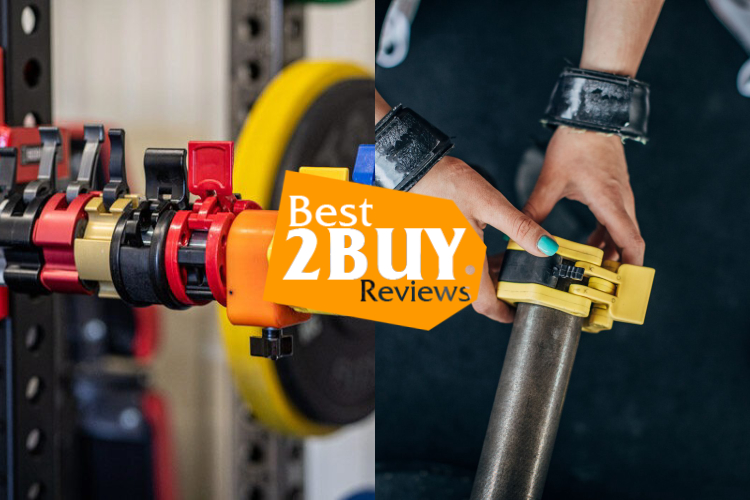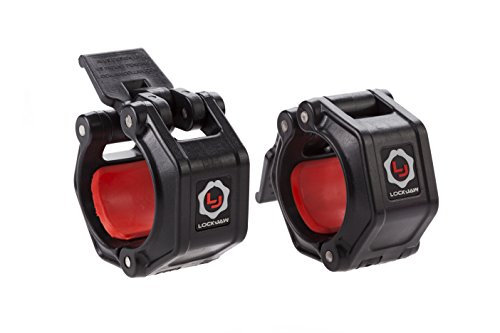How to Choose the Exercise Collars
Everything You Need To Know About Exercise Collars

What Is An Exercise Collar?
An exercise collar, also known as a Barbell Collar or Barbell Clamps, are devices used to secure weight plates onto the ends of a barbell. They are typically made of durable materials such as metal or plastic and are designed to prevent the weight plates from sliding or shifting during exercise.
Uses of Barbell Collars
Barbell collars are essential for maintaining the stability and safety of the barbell. They ensure that the weight plates stay in place, preventing them from sliding off and potentially causing injury. By securing the plates tightly against the barbell sleeves, collars help maintain balance and control during various exercises, such as squats, bench presses, deadlifts, and overhead presses.
Types Of Barbell Collars
There are several types of barbell collars used to secure weight plates on a barbell. Here are some common types:
- Spring Collars: These are the most basic and widely used type of barbell collars. They consist of a simple spring mechanism that clamps onto the barbell sleeve, holding the weight plates in place. Spring collars are easy to use and affordable, but they may not provide the tightest grip.
- Screw Collars: Screw collars have a threaded design that allows you to twist them onto the barbell sleeve. They provide a more secure hold compared to spring collars, as they can be tightened firmly against the weight plates. However, they can be time-consuming to put on and take off.
- Spin-Lock Collars: Spin-lock collars feature a threaded design similar to screw collars, but they have a quick-release mechanism that allows for faster adjustments. They typically have a handle or knob that you can turn to tighten or loosen the collar. Spin-lock collars provide a secure grip and are relatively easy to use.
- Clamp Collars: Also known as Olympic collars, clamp collars are designed to fit Olympic-sized barbells with a 2-inch sleeve diameter. They use a lever or cam mechanism to secure the weight plates tightly against the barbell sleeve. Clamp collars offer a strong and secure hold, making them popular for heavy lifting and powerlifting.
- Lock-Jaw Collars: Lock-jaw collars are a type of clamp collar that uses a locking mechanism to secure the weight plates. They often have a quick-release lever that allows for easy adjustments. Lock-jaw collars are known for their durability and reliability, making them a preferred choice in commercial gyms and professional settings.
Why You Should Use Barbell Collars
Using barbell collars is essential for maintaining safety, stability, and proper weight distribution during your weightlifting sessions. They provide peace of mind, allowing you to focus on your form, increase intensity, and make the most out of your workouts.
- Safety: Barbell collars help to secure the weight plates in place, preventing them from sliding or shifting during your workout. This ensures that the weights remain balanced and stable, reducing the risk of accidents or injuries caused by plates falling off the barbell.
- Stability: When performing exercises such as squats, bench presses, or overhead presses, having the weights securely fastened with collars provides stability. This stability allows you to focus on your form and technique, maximizing the effectiveness of your workout.
- Even Distribution of Weight: Barbell collars help to distribute the weight evenly on both sides of the barbell. This balance ensures that you maintain proper alignment and symmetry during your lifts, reducing the strain on your muscles and joints.
- Increased Intensity: By using collars, you can add more weight to the barbell without worrying about the plates shifting or falling off. This allows you to push yourself harder and increase the intensity of your workouts, leading to greater strength and muscle gains over time.
- Efficiency: With barbell collars, you can perform exercises more efficiently since you don't have to constantly readjust the weights. This saves you time and energy during your workout, allowing you to focus on your training goals.
How To Choose Barbell Collars
Opt for collars instead of clamps
Collars are a superior choice compared to clamps as they function similarly to spring-activated clamps but offer a more convenient experience. They create less friction with the barbell sleeve, making them easier to use. Simply press down on the latch to attach collars quickly and securely, allowing for effortless removal and attachment.
Prioritize simplicity in collar design
When selecting collars, look for those with straightforward fastenings that are easy to use. Avoid overly complex designs that can lead to confusion and waste time during your workout when adding or removing plates. However, keep in mind that a collar should still provide a secure hold on the barbell, so it should not be too easy to latch on, as that could cause slipping.
Functionality is more important than looks
While visually appealing collars exist, prioritize functionality over looks. The main purpose of a collar is to prevent injuries, so avoid sacrificing its functionality for a stylish design. Make sure the collar is durable and inspect its warranty, as it will regularly endure the impact of the barbell being dropped, especially if you frequently engage in heavy lifting.
Choose the appropriate material based on weight lifted
For weights under 275lbs, opt for aluminum collars. They are both sturdy and lightweight, making them suitable for lighter lifts without significantly adding to the overall weight.
For heavier weights, choose steel collars. They provide a snug fit and are long-lasting, making them ideal for heavy lifting. However, bear in mind that they may add up to 5 pounds to the total weight.
Avoid plastic collars, as they are stretchy and may be prone to slipping, making them less suitable for weightlifting.
In conclusion
Selecting the right barbell collars is crucial for a safe and effective weightlifting experience. By considering factors such as collar type, compatibility, material, and personal preferences, individuals can make an informed decision that suits their needs. Investing in high-quality collars will not only enhance safety but also contribute to better performance and results in weightlifting workouts.











